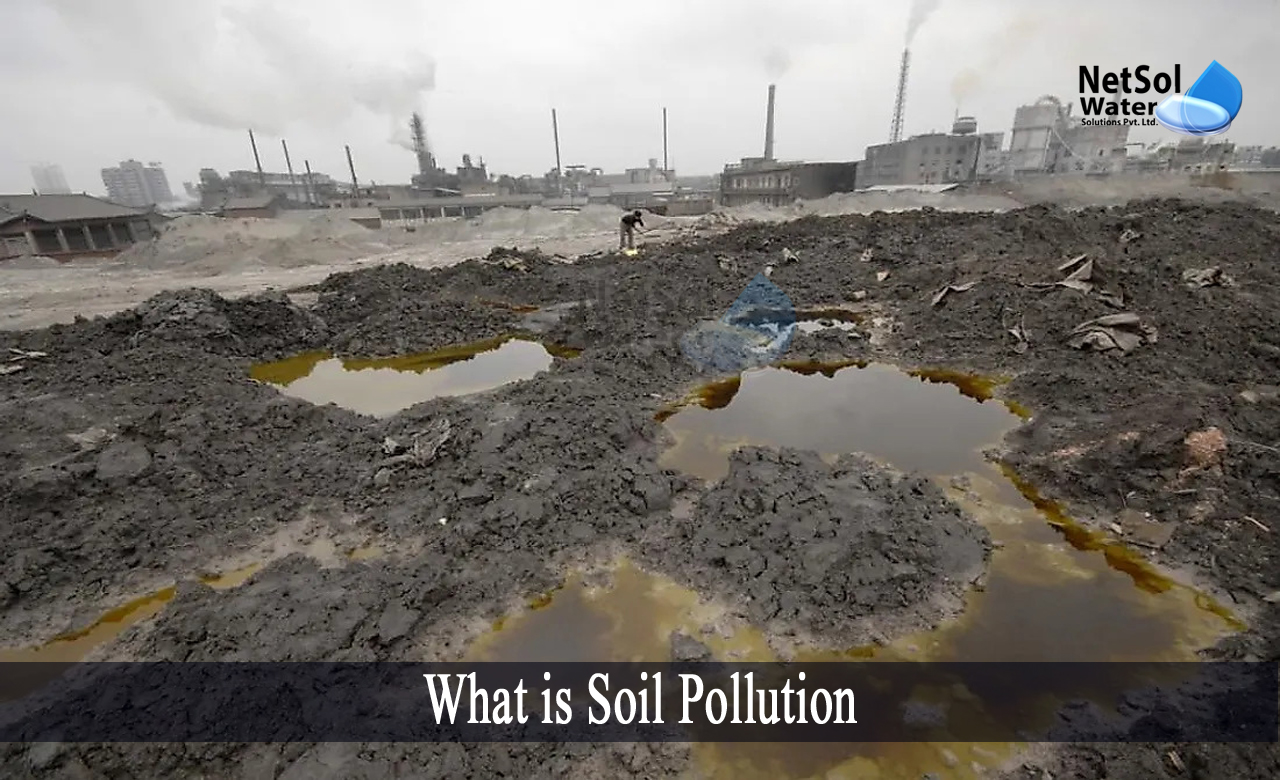Soil is the thin layer of organic and inorganic components that covers the rocky surface of the Earth. The organic part is concentrated in the dark topmost top soil and is obtained from the rotting remains of plants and animals. The inorganic part, which consists of rock fragments, was created over thousands of years as a result of the physical and chemical weathering of bedrock.
Productive soils are required for agriculture to provide enough food for the world, but with rapid increase in population and industrialization, there has been soil and land pollution in every part of globe.
What is Soil Pollution?
Soil pollution is described as the accumulation of persistent harmful substances, chemicals, salts, radioactive elements, or disease-causing agents in soils, which has a negative impact on plant development and animal health.
Poor agricultural methods, insufficient irrigation, incorrect hazardous chemical and nuclear waste disposal, and a variety of industrial, military, and extractive operations, all contribute to soil pollution.
Pollutants damage soils, exposing humans and wildlife living near former industrial sites and reclaimed areas, to contamination if they are not carefully and adequately decontaminated.
Pollutants in soil
It can occur in a variety of ways, including:
• Leachate from a landfill
• Industrial waste discharge onto the soil
• Contaminated water percolates through the soil
• Underground storage tank rupture
• Excessive use of harmful chemical pesticides, or fertilizer
• Seepage of solid waste
Types of soil pollutants
· Agents of biology
Inside the soil, biological agents operate to incorporate manures and digested sludge (derived from human, avian, and animal excreta) into the soil.
· Practices in agriculture
Pesticides, fertilizers, herbicides, slurry, waste, and manure all pollute crop soil to varying degrees.
· Pollutants that are radioactive
Radium, Thorium, Uranium, Nitrogen, and other radioactive chemicals can enter the soil, and cause hazardous effects.
· Urban Waste
Waste and refuse items, dried sludge, and sewage from home and commercial waste comprise urban waste.
· Industrial waste
Paper mills, oil refineries, sugar factories, petroleum industries, and others generate steel, pesticides, textiles, pharmaceuticals, glass, cement, and so on. Mining operations, nuclear fuel preparation, coal combustion, chemical manufacture, leather tanning, electronic waste, and industrial waste are all sources of heavy metal contamination.
Heavy metal contamination is a public health risk, particularly for youngsters and pregnant women, because heavy metals can become highly concentrated in soils and remain latent for many years, without decomposing.
Types of soil pollution
• Pollution of Agricultural Soils
1. surface soil pollution
2. contamination of underground soil
• Pollution of soil caused by industrial effluents and solid wastes
1. surface soil pollution
2. soil profile disruptions
• Pollution caused by urban activity
1. surface soil pollution
2. contamination of underground soil
Sources of soil pollution other than agriculture
Non-agricultural soil contamination is typically the direct outcome of urban development, produced by a quickly expanding population and a rapidly increasing per capita waste output, associated with our modern way of life.
Its elements that enter the soil system have a long persistence and accumulate in dangerous concentrations, becoming sources of contamination. Inorganic toxic chemicals are among the most significant soil contaminants.
Conclusion
By accumulating and sometimes concentrating toxins that wind up in the soil from numerous sources, soil acts as a natural sink for contaminants. Tiny amounts of contaminants accumulate in the soil and can reach significant levels, and pollute the soil depending on environmental factors (including soil types), and the degradability of the released contaminant.
Home-grown veggies and fruits may get tainted if the soil is contaminated. This occurs because the plants remove the majority of the soil contaminants present in the soil, along with water every time they eat. As a result, it is usually a good idea to examine the soil before beginning to grow anything edible. This is especially crucial if your garden is near an industrial or mining area, or if you live within one mile of a major airport, harbour, landfill, or foundry.
How can we assist?
To protect our environment, we offer a variety of modern solutions such as solid waste management, wastewater treatment, sewage treatment, water treatment, etc. For this purpose, we manufacture a variety of water treatment plants, wastewater treatment plants, effluent treatment plants, solid waste recyclers, green waste recyclers, etc.



